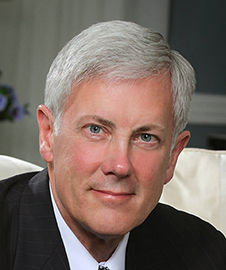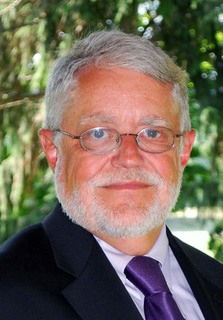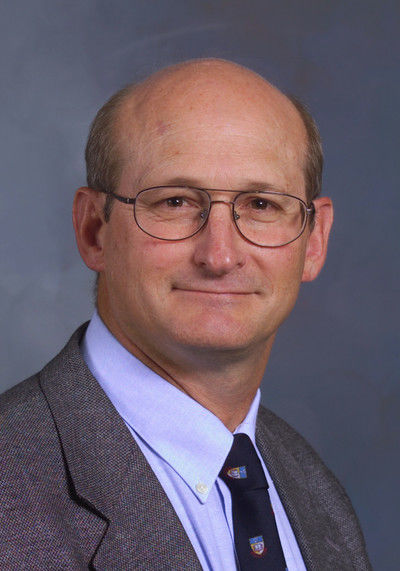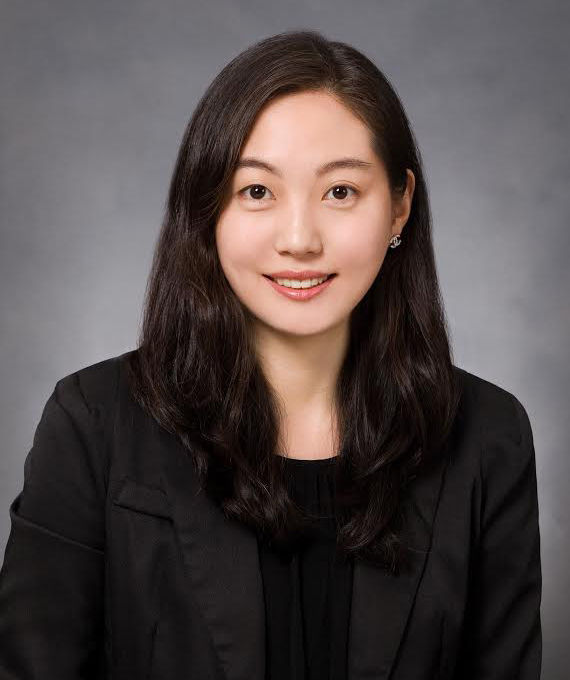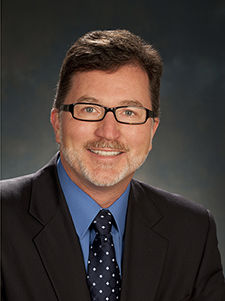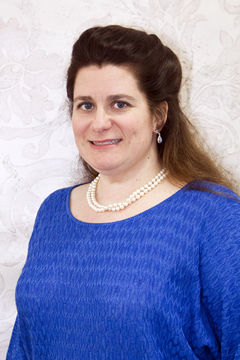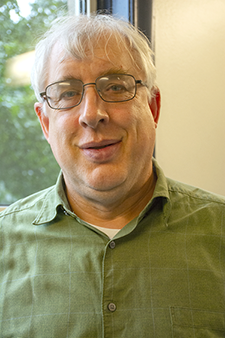Penn State Schuylkill: Realizing our Land-Grant Mission
Established in 1934, Penn State Schuylkill is one of the oldest Penn State campuses. In the fall of 2019, we commemorated our 85th Anniversary with a series of common hour conversations, invited speakers, and research presentations. Whether specifically addressing the history of the University and the land-grant model, or more broadly speaking to important issues of the day, at the heart of the speaker series was a conversation about the very distinctive mission of land-grant universities and how Penn State Schuylkill was delivering on that mission in the 21st century.
All of these events were free and open to the general public.
Thank you for joining us! A review of 85th Anniversary events.
SEPTEMBER
Common Hour Conversation
Realizing Our Land-Grant Mission: Challenges and Opportunities for Penn State Schuylkill
Thursday, September 12
12:20 – 1:10 pm
Morgan Auditorium
Special Event
85th Anniversary Birthday Party
Thursday, September 19
Carnival on the Mall Walk
2:00 – 4:00 pm
Games from every decade, Penn State trivia, scavenger hunt and more!
Art Exhibit: Allied Artists of Schuylkill County
4:00 – 6:00 pm
Student Community Center
Book Signing: Dr. Roger Williams
6:00 pm
Student Community Center
Dr. Williams will be signing copies of "Evan Hugh's Penn State: America's Model Agricultural College"
Sponsored by the Penn State Schuylkill Bookstore
Performance: Penn State Schuylkill Alumni Chorale
6:30 pm
Morgan Auditorium
Birthday cake and Penn State Berkey Creamery ice cream
8:00 pm
Student Community Center
Invited Speaker
Forging Penn State's Land-Grant Mission, 1855 - 1906: Presidents Evan Pugh and George Atherton
Roger L. Williams, D.Ed.
Thursday, September 19
7:00 pm
Morgan Auditorium
Founding President Evan Pugh (1859-64) established Penn State as the nation's model agricultural college during the midst of the Civil War and secured the land-grant designation from the federal and state governments. After his tragic death, the college went into an 18-year tailspin under five troubled presidencies. George Atherton, the "second founder," arrived in 1882, saving the college from failure, reconciling it to its land-grant mission, and setting it on course for success in the 20th Century.
Dr. Roger Williams served as associate vice president and executive director of the Penn State Alumni Association, the world’s largest, from 2003 to 2015 and as Affiliate Associate Professor in Penn State’s Higher Education Program. He is the author of two books on Penn State’s history, The Origins of Federal Support for Higher Education: George W. Atherton and the Land-Grant College Movement, and Evan Pugh’s Penn State: America’s Model Agricultural College.
Research Presentation
The Centralia Mine Fire: Social Conflict and the Death of a Pennsylvania Community
Stephen Couch, Ph.D.
Thursday, September 26
7:00 pm
Morgan Auditorium
When a coal mine fire was discovered in the community of Centralia, Pennsylvania, in 1962, there were over 1,000 residents. Today, there are 10. Well before the buildings were razed and most residents were relocated, the social community had been destroyed by rancorous social conflict. This presentation describes why this happened and how studying Centralia led to the discovery of a new type of disaster which, if left unchecked, results in social and individual trauma greater than that found with hurricanes and tornadoes.
Dr. Couch will be signing copies of his book, The Real Disaster Is Above Ground: A Mine Fire and Social Conflict, following his presentation.
Dr. Stephen Couch is a professor of sociology at Penn State Schuylkill. He is co-author or co-editor of four books and has written over thirty published research articles, most of them dealing with environmental sociology and technological hazards. His research projects include the study of community responses to technological disasters in Texas, Wyoming, and Pennsylvania – beginning with the Centralia coal mine fire, investigating victims’ group formation, and activities following the terrorist attacks of September 11, 2001, and exploring Pennsylvania’s infamous Coal and Iron Police. His research includes disasters and popular culture, and the study of zombies, scary clowns, and the sociology of fear's relationship to our divisive political culture. He has presented his research at conferences throughout the United States, as well as in Europe, Mexico, and Japan.
OCTOBER
Common Hour Conversation
Realizing Access to an Affordable High-Quality Education: Definitions, Challenges, and Actions Needed
Thursday, October 3
12:20 –1:10 pm
Morgan Auditorium
Invited Speaker
Penn State Fulfilling The Land Grant Mission in the Early 21st Century
Richard Roush, Ph.D.
Thursday, October 10
7:00 pm
Morgan Auditorium
Founded in 1855 and designated Pennsylvania’s land-grant institution in 1863, Penn State requested money from the state legislature in 1911 to fund a system of agricultural agents to share knowledge from the School of Agriculture with practicing farmers across the state. The Smith-Lever Act of 1914 provided $10,000 from the federal government annually to each state for agricultural and home economics extension. Penn State has continued to grow the extension operation over the years with a particular focus on agriculture, the environment, human health, and in areas such as pollination ecology and human and animal diseases. Today, Penn State is leading the nation in delivering extension advice and information at locations across the Commonwealth and on-line 24 hours a day, 365 days a year. Dr. Roush will address the impact of the land-grant model by comparing data from the United States and Australia. Both countries have very advanced agricultural industries, but only the United States has land-grant universities. This comparison will illustrate the advantages of the land-grant model to the great benefit of agriculture and rural life in the United States.
Dr. Richard Roush is the dean of Penn State’s College of Agricultural Sciences. His career has included research, teaching, regulatory, and administrative appointments in both the United States and Australia. He previously served as Dean of the Melbourne School of Land and Environment at the University of Melbourne (2006-2014), Director of the University of California’s Integrated Pest Management and Sustainable Agriculture Programs (2003-2006), and Director of the Cooperative Research Centre on Australian Weed Management based at the University of Adelaide (1998-2003). His research focuses on strategies to slow insect pests and weeds from evolving resistance to genetically modified insect-resistant crops and pesticides, as well as the biological control of pests. His work involves crops as diverse as potatoes, wheat, corn, cotton, lucerne, grapes and almonds, and in natural ecosystems across the United States and Australia, as well as India and China. In addition to serving on review panels for the USDA and US EPA, Roush served as a member of the Australian Genetic Manipulation Advisory Committee (GMAC) from 1998-2003.
Research Presentation
The Case of Cyberbullying: Using Big Data to Address A Social Problem
Juyoung Song, Ph.D.
Thursday, October 17
7:00 pm
Morgan Auditorium
Cyberbullying has become a worldwide social problem. This presentation will address cyberbullying by using big data analysis to understand and confront it. In addition, a panel of community members from local schools and law enforcement agencies will discuss incidences of cyberbullying and methods that are currently used in Schuylkill County to combat it.
Dr. Juyoung Song is an assistant professor of administration of justice at Penn State Schuylkill. She has published several articles on cyberbullying, underage prostitution, and juvenile delinquency in the International Journal of Offender Therapy and Comparative Criminology, Journal of Criminal Justice, and other peer-reviewed journals. She has presented results of her research on "Big Data and Machine Learning," and has published five books about big data analysis in Korean. Dr. Song has presented at criminological conferences located in the United States and big data conferences internationally, including the 2017 Conference on Governance, Crime, and Justice Statistics in Lima, Peru, and for the United Nations Crime Prevention and Criminal Justice Programme Network in Vienna in 2014. Song’s teaching interests and experience include courses on qualitative/quantitative research methods, statistics, comparative criminal justice/criminology, and juvenile delinquency.
Common Hour Conversation
Realizing the Land-Grant Mission on Regional Campuses: The Role of
Penn State's Commonwealth Campuses
Stephen Gavazzi, Ph.D.
Thursday, October 24
12:20 – 1:10 pm
Morgan Auditorium
Invited Speaker
Fulfilling the Land-Grant Promise Through Our Nation’s Regional Campuses
Stephen Gavazzi, Ph.D.
Thursday, October 24
7:00 pm
Morgan Auditorium
Land-grant universities occupy a special place in the landscape of higher education. These publicly funded institutions carry out a democratic and pragmatic mission: to bring science, technology, agriculture, and the arts to the American people. Two of today’s most daunting challenges are accessibility and affordability. Simply put, how do land-grant universities offer admission to the greatest number of their state's citizens in the most inexpensive manner possible? Dr. Stephen Gavazzi, the primary author of the 2018 book, Land-Grant Universities for the Future: Higher Education for the Public Good, will provide expanded and updated information about these and other significant issues impacting the 21st Century land-grant mission. As a former dean and director of The Ohio State University at Mansfield, Dr. Gavazzi has a keen appreciation for the special role that regional campuses play in carrying out the obligations and responsibilities of our nation’s premier flagship and land-grant universities.
Dr. Gavazzi will be signing copies of his book, Land-Grant Universities for the Future: Higher Education for the Public Good, following his presentation.
Dr. Stephen Gavazzi is a professor in the Department of Human Sciences in the College of Education and Human Ecology at The Ohio State University. He is a trained marriage and family therapist whose scholarship has surrounded the impact that family dynamics have on adolescent development and behavior. His most recent scholarship centers on the establishment and maintenance of healthy campus-community relationships. His work on town-gown issues makes use of his marriage and family therapy background and has given rise to the development of a typology described in his 2016 book, The Optimal Town-Gown Marriage, that draws parallels between campus-community relationships and marriages. In addition to being on faculty, he previously served as dean and director of The Ohio State University at Mansfield and, in 2018, published Land-Grant Universities for the Future: Higher Education for the Public Good with co-author E. Gordon Gee. In this landmark book, they studied challenges faced by land-grant universities today and how they might renew their commitment to this unique mission.
NOVEMBER
Common Hour Conversation
Realizing our Educational Mission: A Conversation with the Campus Committee on Program Offerings
Dr. Michael Gallis, associate professor, physics, Penn State Schuylkill
Tuesday, November 12
12:20 – 1:10 pm
Morgan Auditorium
Invited Speaker
A Sustainable Schuylkill County: Past, Present, and Future
With “Porcupine Pat” McKinney, Blue Mountain Wildlife, and The Red Creek Wildlife Center
Thursday, November 14
7:00 pm
Morgan Auditorium
How can we make Schuylkill County a better place to live for humans and all other non-human residents? How can we help protect the environment for future generations? Featuring a panel discussion of local wildlife rehabilitation and watershed groups moderated by "Porcupine" Pat McKinney, this presentation will include how and why each group was founded, what they have accomplished and are working on at this time, and where they see their mission going in the future. There will be information on how local and campus community members can get involved.
“Porcupine Pat" McKinney serves as an environmental education coordinator for the Schuylkill Conservation District. He provides program services for people of all ages, with a special emphasis on teacher workshops, nature center development, and public programming. “Porcupine Pat” is originally from Marion, Ohio, and holds a Bachelor of Science degree with Distinction in Natural Resources and Environmental Interpretation from The Ohio State University. He is an award-winning environmental educator, having received the prestigious Sandy Cochran Award for Excellence in Natural Resources Education from the Pennsylvania Forestry Association in 2005, the Schuylkill Pride Award in Fall 2007, the Schuylkill Outdoors Personality of the Year in 2010, and the Pennsylvania Association of Environmental Educators “Outstanding Environmental Educator Award” in 2013.
Common Hour Conversation
Realizing our Research Mission: A Conversation with the Campus Committee on Research and Creative Activities
Dr. Ping Wang, professor, mathematics, Penn State Schuylkill
Tuesday, November 19
12:20 –1:10 pm
Morgan Auditorium
Research Presentation
Tales of the Gubi: Documenting the Persistence and Adaptation of an Eastern European
Christmas Folk Tradition in Schuylkill County
Nicole Andel, Ph.D., and Harold Aurand, Ph.D.
Thursday, November 21
7:00 pm
Morgan Auditorium
Schuylkill County is home to individuals from many different countries and diverse cultures. As a result of cultural change, including intermarriage among these diverse peoples and the influence of mass media, some aspects of these cultures have disappeared. One practice that has endured in spite of this is the Eastern European Christmas tradition of the Shepherd Carolers, or what are called Gubi. This presentation looks at this unique holiday processional, discusses the reasons why it has survived and posits why it is important that it remains a part of Schuylkill County's culture.
Dr. Nicole Andel is an associate teaching professor of English at Penn State Schuylkill. She offers courses in composition, literature, and the arts. While she pursues projects on death, the afterlife, and even zombies, in literature and drama, she has been involved in a years-long project studying the roots of Shepherd Carolers' dramas in Carpatho-Rusyn and Slovakian culture as a function of group identity formation. Her interest in the Shepherd Carolers developed as an outgrowth of a course on Winter Holiday Art that she teaches in the fall.
Dr. Harold Aurand, Jr. is an associate teaching professor of history at Penn State Schuylkill. He offers a variety of courses in American, European, and World History, as well as American Studies. One of his previous course offerings focused on the theme of examining ways that Americans have celebrated Christmas. This, combined with his interest in Pennsylvania communities, made teaming up with Dr. Andel to study the Shepherd Carolers a natural fit.
DECEMBER
Common Hour Conversation
Realizing Our Community Engagement Mission: How to Involve All Faculty, Staff, and Students
Shannon DelConte, coordinator, Office of Community Engagement, Penn State Schuylkill
Tuesday, December 3
12:20 –1:10 pm
Morgan Auditorium
Research Presentation
Penn State Schuylkill Faculty Research Symposium: Investigating Issues in Schuylkill County
Featuring presenters: Dr. Marianne Adam, Dr. Hakan Can, Dr. Luke Redmond, Jason Resusher, Dr. Brenna Traver
Thursday, December 5
7:00 pm
Morgan Auditorium


